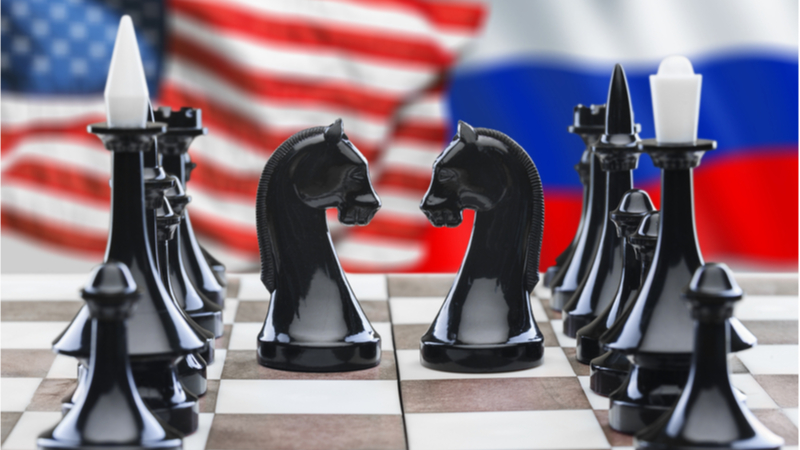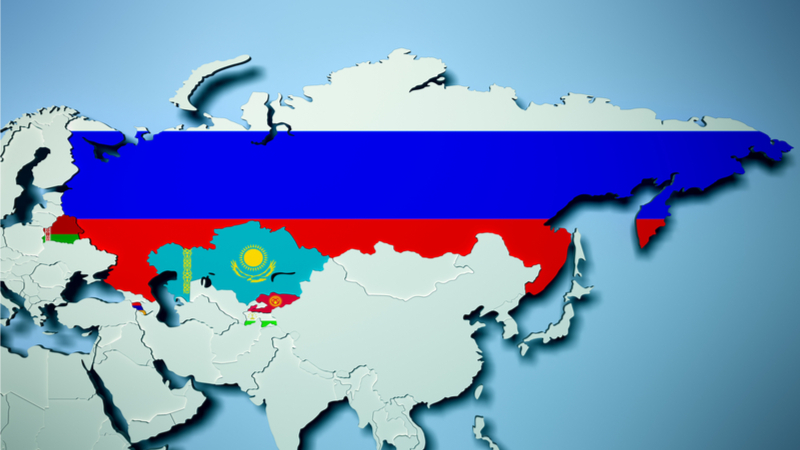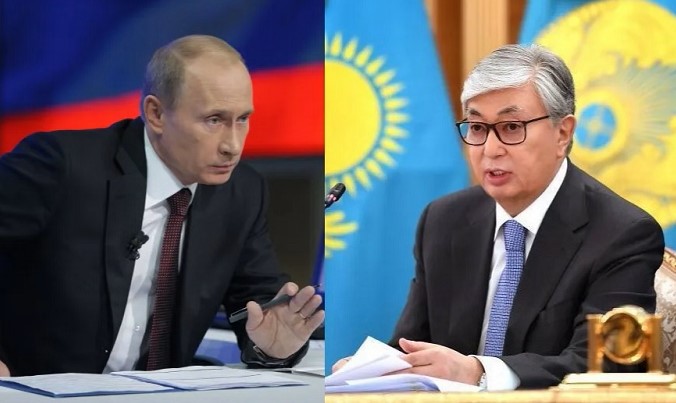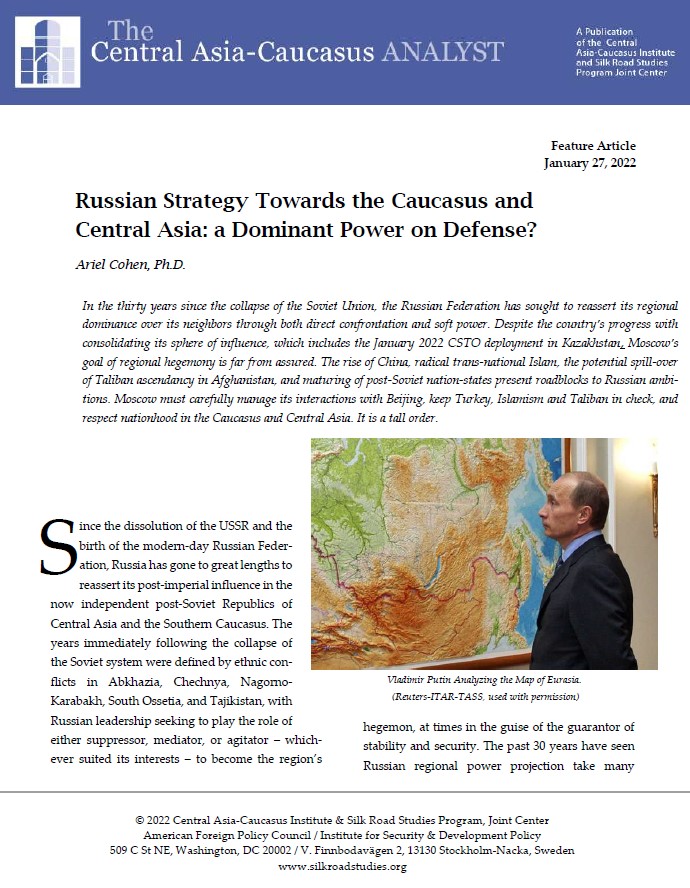U.S.-Russian Cold War - At Central Asia's expense?
By Farkhod Tolipov
February 10, 2022, the CACI Analyst
Two events in December 2021 signified the growing cleavage between the U.S. and Russia: U.S. President Biden initiated the Summit for Democracy while the Kremlin proposed a treaty between the Russian Federation and the U.S. on security guarantees, purportedly to ensure the security of the Russian Federation and NATO member states. Both initiatives pose challenges to the former Soviet republics of Central Asia in terms of their independence as well as their long-term perspective of political development. These events test Central Asian countries’ ability to withstand neo-imperial pressure, as well as their stated commitment to democratic choice.

Russian Strategy Towards the Caucasus and Central Asia: a Dominant Power on Defense?
Russian Strategy towards the Caucasus and Central Asia: A Dominant Power on Defense?
By: Ariel Cohen, Ph.D.
In the thirty years since the collapse of the Soviet Union, the Russian Federation has sought to reassert its regional dominance over its neighbors through both direct confrontation and soft power. Despite the country’s progress with consolidating its sphere of influence, which includes the January 2022 CSTO deployment in Kazakhstan, Moscow’s goal of regional hegemony is far from assured. The rise of China, radical trans-national Islam, the potential spill-over of Taliban ascendancy in Afghanistan, and maturing of post-Soviet nation-states present roadblocks to Russian ambitions. Moscow must carefully manage its interactions with Beijing, keep Turkey, Islamism and Taliban in check, and respect nationhood in the Caucasus and Central Asia. It is a tall order.
Since the dissolution of the USSR and the birth of the modern-day Russian Federation, Russia has gone to great lengths to reassert its post-imperial influence in the now independent post-Soviet Republics of Central Asia and the Southern Caucasus. The years immediately following the collapse of the Soviet system were defined by ethnic conflicts in Abkhazia, Chechnya, Nagorno-Karabakh, South Ossetia, and Tajikistan, with Russian leadership seeking to play the role of either suppressor, mediator, or agitator – whichever suited its interests – to become the region’s hegemon, at times in the guise of the guarantor of stability and security.
The prospect of six-party regional cooperation in the South Caucasus
By Fuad Shahbazov
January 26, 2022, the CACI Analyst
On October 6, 2021, Russia’s Minister of Foreign Affairs Sergei Lavrov met his Iranian counterpart Hossein Amir Abdollahian in Moscow to discuss regional security and economic cooperation, and to address important concerns regarding the crisis in the South Caucasus. During the joint press conference, Lavrov repeatedly highlighted the idea of a “3+3 cooperation format” including the three South Caucasus states – Armenia, Azerbaijan, and Georgia – plus their three large neighbors, Russia, Turkey, and Iran, to focus on unlocking economic and transport communications in the region. The first meeting within the format took place in Moscow on December 2021; however, Georgia refused to take part. Moreover, recent tensions in the region between Armenia and Azerbaijan as well as Azerbaijan and Iran suggest that the proposed format will not generate visible positive outcomes.

Kazakhstan’s Stress Test: The January Tragedy and its Aftermath
By Ariel Cohen
January 24, 2022, the CACI Analyst
In the first weeks of 2022, Kazakhstan experienced its most intense protests since the collapse of the Soviet Union. The causes of the turmoil in the country – like any major upheaval – are multi-faceted and were long in the making. Despite the violence, the speed of crisis resolution is impressive, and the country appears to continue on its path of modernization, reforms, and a balanced foreign policy, which keeps the great powers: U.S., Russia, and China engaged and at a safe distance. Less than three weeks after the violent eruption, the painful “lessons learned” period has begun.

Thirty Years After the Belovezha Accords: Facing Russian Chauvinism, Kazakhstan Reaffirms its Sovereignty
By John C. K. Daly
December 20, 2021, the CACI Analyst
On December 10, 2020, Russian Duma deputy Viacheslav Nikonov claimed that there had been no such country as Kazakhstan in the past, and that the northern part of modern-day Kazakhstan used to be unpopulated. He did so on his “The Great Game” (Большая игра) TV program on the state-backed Channel One, dedicated to the 30th anniversary of the signing of the Belovezha Accords. Rubbing salt in the wound, Nikonov added that “Kazakhstan’s territory is a big gift from Russia,” causing consternation in the Kazakh government and outrage in the country’s media. In light of Russia’s March 2014 unilateral territorial absorption of Ukraine’s Crimea, questions of post-Soviet national territorial sovereignty are not an idle concern.












 Book S. Frederick Starr and Svante E. Cornell,
Book S. Frederick Starr and Svante E. Cornell,